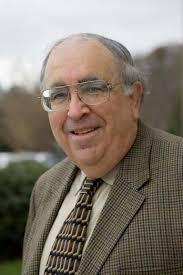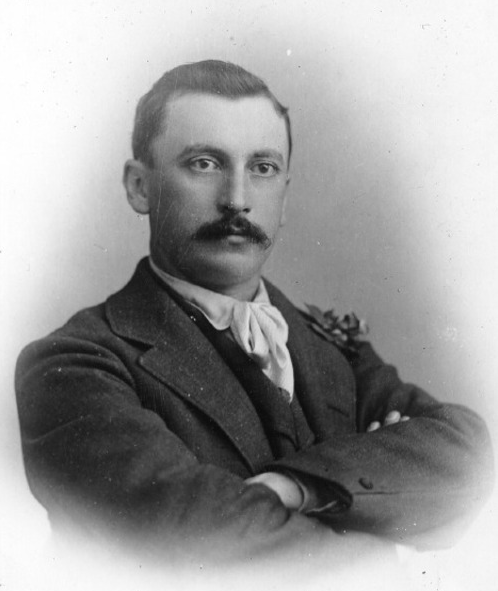
The Mises Institute puts out a regular periodical, The Austrian, and in the July-August 2019 edition, the main article is an interview with Dr. Paul Cantor, English professor at the University of Virginia. Cantor has long been one of my favorite authors and speakers, and I always keep up with his work. I own most of his books and have read all of his articles, as he often writes not only about literary topics (he is a Shakespeare scholar), but about pop culture and what we can learn from it, especially from an Austrian Economics perspective. A few years ago, when I had a question that I thought he could best answer, I sent him an email and he replied that it would be easier to discuss via a phone call, so I called him and we had a nice conversation for over an hour. Dr. Cantor is a friendly, helpful, and dedicated scholar. If you have not read any of his works, I encourage you to give them a look. (I have not yet purchased his newest book, but soon will).
In any event, in the recent interview, Dr. Cantor is asked about the paucity of quality that is found in the various humanities departments in American universities, with budgets for those fields being cut and the numbers of English, History, and Philosophy majors plummeting. His reply is enlightening:
…my answer to the problem is internal, that humanities departments wouldn’t be losing as many students if they still had something high minded to offer students. …most colleges and universities are now advertising themselves on the idea that you will boost your income by going to college and the more they choose to raise their tuition, the more it seems imperative to students to get some payback for their money. But what the liberal arts – especially humanities – used to have to offer is great books, great paintings, great music, and you could make a deal with students. Yeah, this stuff’s tough. It’s not easy to understand a J.S. Bach fugue, and it’s not easy to read Joyce’s Ulysses and it’s not easy to comprehend Michelangelo’s Sistine Chapel. But at the end of the effort, you will be a better human being and you will feel it; you will feel uplifted from having encountered this and you will see your life change…But, it’s very difficult now that the humanities have become a species of what is known as grievance studies in the world. Now, you turn to literature, not because it’s uplifting, not because it’s in any meaningful sense “great,” but you regard literature as the expression of identity. Most of the time it’s the expression of a bad identity. Most courses will concern themselves with whether a given author is sexist or racist or classist. The idea is to treat the artist negatively, as politically incorrect, and that gets old very quickly…literature is seen now as a means to social justice.
Dr. Cantor is dead-on correct. The modern American academia, the humanities, is dead. Now, do not misunderstand me – great literature, art, music, and philosophy are as vital and important as ever, but in the university environment, they are no longer celebrated for their greatness, but are denigrated and despised. Perhaps it is long past time for the current approach to finish its death throes and be done with it. Then we can return to something useful.
And that is where we find ourselves. Yes, I am painting with a broad brush, but the reality is that there are few exceptions in faculty in modern academia. For every Dr. Paul Cantor, there are hundreds (maybe thousands) of SJW-converged profs who are ruining their students’ appreciation for fine art. Students get told how bad things are all the time, so why would they take courses that they do not need to be reminded of that fact? Well, they do not. Fewer and fewer choose to enter those fields of study, and fewer and fewer take those classes as electives. Rather, they take science, math, or other such courses, where they can focus on study, rather than being browbeaten about how evil they are (especially if the student is a white male).
Jesus proclaimed that you could tell a tree by its fruit. Modern humanities studies have produced little fruit, and what they do yield is sour, bitter, and without nourishing value. Just as Jesus condemned the barren fig tree, so we condemn the barren departments of humanities that litter our country’s campuses.
What we need is a revival of truth. What we need is a resurgence in studies that extol the value of these works, looking for heroes and how we can encounter the human condition in the narratives, art works, music, and philosophical ponderings.
We no longer want to read about Marxist class oppression in Hamlet or how Dostoevsky shows the maltreatment of females in his novels. Instead, we want to see how a young man struggles in difficult circumstances, making mistakes and paying the price – the way things actually work in the world. We want to see how Dostoevsky presents the vital role that Christianity plays in the lives of his characters and society. That was his purpose.
If we can return to a legitimate study of the humanities, then they will again become important in our society, as they should be. As Dr. Cantor points out, this would include studies in television and film, in addition to the traditional areas. These are all ways that we tell stories, present images and music, and ponder the deeper meaning of the universe and our role in it.

Science and math can explain the working of the universe, but the humanities explain the reasons for why any of it matters. Without humanities, the other fields are all sterile and devoid of purpose. It is the confluence of science and humanities that provides for a well-rounded worldview. This is why so many of our classic authors were polymaths – they understood that all of these things mattered. We turn to Aristotle, Newton, Leibniz, Aquinas, and others, who did not limit themselves to only one field, but pondered the depths of many. We need more of the same today.
So what do we do about it? The first step is to recognize that the modern presentation of the humanities is flawed and of little value, deserving only to be rejected. Yet it is the approach that is wrong, not the subject matter. We should not throw out the baby with the bathwater. We should not reject humanities at all, but rather the faulty methods of interpretation that are currently forced down our throats.
Second, we need to rediscover proper interpretation. Do a quick search and find the various models presently used. If they were not developed until the mid 19th Century or later, then reject them. That gets rid of the following: Marxist Criticism, Psycho-Analysis, Feminist

Criticism, Post-Colonial Criticism, Reader-Response Criticism, and more. Those are all methods that dampen enthusiasm for the text. (One exception might be the Archetypal Criticism model, which tends to connect stories to other works from the past, looking for recurring characters, etc. A quick example would be viewing Superman, where we see the archetype of Christ. Both are “not of this world,” are raised by a stepfather, have abilities that others do not, stand for truth and justice, etc.) Rather, rely more on historical models and other common-sense methods of finding meaning. Compare the stories to real life. What do we learn from these stories? What did the author want us to learn? What does the artistic image offer us that demonstrates beauty and goodness? How can that piece of music uplift us, thrilling our souls?
Third, we need to teach our children to enjoy good literature, art, music, history, philosophy, etc. Find quality instructors, like Dr. Cantor (English), Dr. Rachel Fulton Brown (History) or Dr. Edward Feser (Philosophy) who can provide useful opportunities for learning. We may not be able to sit in a classroom with these men and women, but we can read their writings, watch their videos, and begin to relearn how to study these subjects, so that they become useful once again.
On a side note, I highly encourage you to learn logic. Avoid modern variants and innovations here, as they are also converged. I mean learn classical logic. Here is the original – Aristotle. Here is another good, more modern, take on the same. Learning to think logically is sorely lacking in our modern world.
Ultimately, we need a revolution at the university level of study (or something else to replace it), but that is a longer-term goal. For now, we will have to approach it individually, and in small groups.
So yes, in the universities, the humanities are dying, barely on life support, and the final breath is drawing near. But we take heart in knowing that the humanities still live and offer much value to our society. The humanities are dead. Long live the humanities.










5
Good stuff here. Being currently in college, I see this crap every day. Going through Shakespeare’s sonnets, the main focus was on whether or not the content was bisexual or not. Drove me up the wall. I wonder if the plan for suddenly making every historic author a perv is an attempt to make the current generation reject their own heritage out of disgust.
Some profs are intentionally sabatoging culture. Others are midwits that just got taught that stuff and regurgitate it. Our goal is to overcome that nonsense (and yes, I am a prof).
By reading a few books, I passed three different CLEP exams for my humanities requirements. Saved a lot of time and money. Funny thing is I liked the content of the material better than all the business management stuff that I was going to school for in the first place.
Literature is fantastic, but the way it is taught now is horrible.
Great story, great writer. Sad to see we lost Dr. Paul Cantor. Now that I know more about him, I still feel a void somehow. And I have faith that because of people like him, Humanities will soon be revived. I can see things sometimes have to hit rock bottom first.
I’d like to post this article on my website. Great article and writing. Amazing mam Dr. Paul Cantor.
Feel free to repost on your site. We just ask that you provide a link back to us.